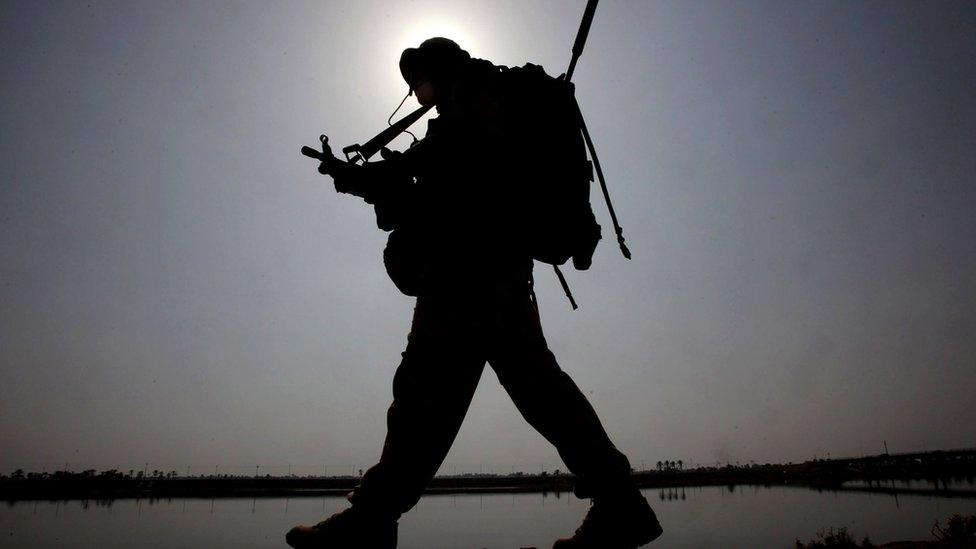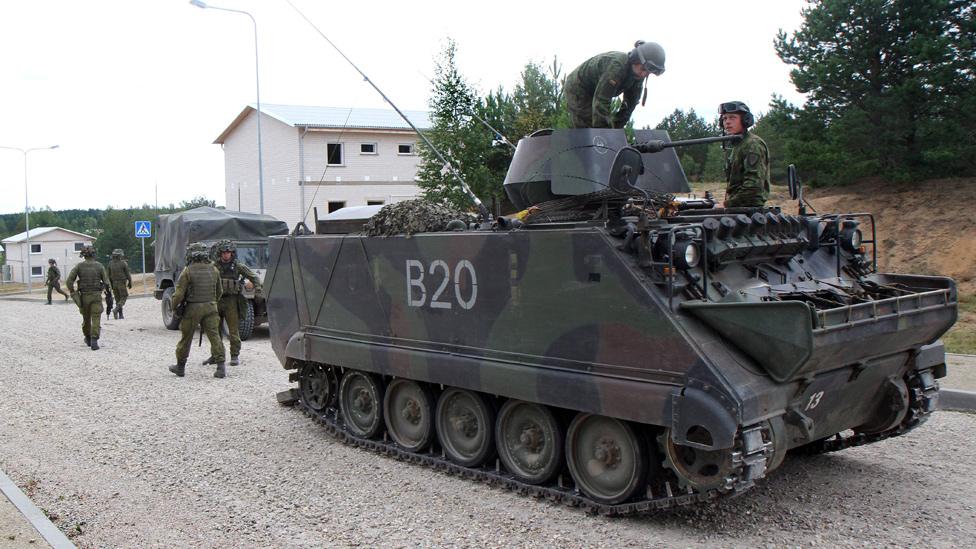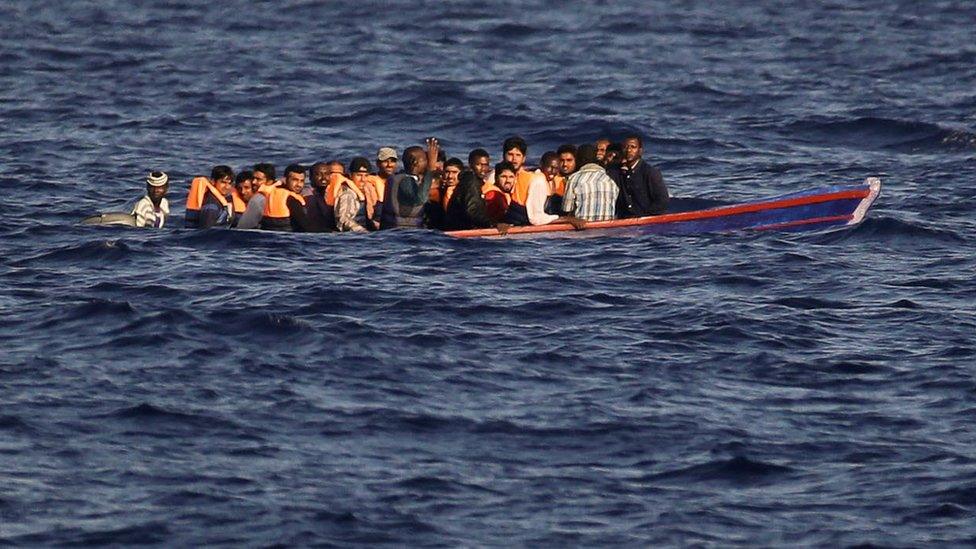Brexit vote revives dream of EU army
- Published

Brexit could pave the way for development of the embryonic EU army
The British decision to leave the European Union in the wake of the Brexit referendum has given renewed impetus to the idea that the EU should have its own army.
The UK - by far the most capable European military player, along with France - has always been a brake on such an idea, fearing unnecessary duplication with Nato.
The UK went along with EU plans up to a point. A British army light mechanised infantry unit (2nd Battalion the Yorkshire regiment) currently forms the core of one of the EU's 1,500-strong battle groups: a rapid-reaction force capable of being deployed to a crisis zone at short notice.
In fact over recent years the UK has also stepped up defence co-operation with France - a natural partner, given the scale of their military ambitions.
Indeed, defence was the sector in which the UK was perhaps the strongest EU player, in part to compensate for Britain's absence from other core issues of European business - the common currency, the project for ever greater political union and so on.
But Britain's view was that EU defence co-operation should only go so far. Nothing should be done to reduce the primacy of Nato and money should not be wasted on duplicating things that the transatlantic alliance was already doing.
This - broadly speaking - is the US view too.
What matters in Washington is European defence spending and capability. The willingness (or as he would see it unwillingness) of America's European partners to pay more for defence is a key element in the Republican candidate Donald Trump's critique of Nato.
But now, with the UK in the departure lounge for EU exit, a number of European leaders are reviving the idea of a stronger EU defence identity - summed up in the phrase, "a European army".

Lithuanian troops in Pabrade: Nato has stepped up exercises in the Baltic region near Russia

Creating an EU army may be a way to improve the EU's image, battered by the migrant crisis
This has long been the ambition of the most ardent eurocrats. Back in March 2015, European Commission President Jean-Claude Juncker declared that a common European army was needed to address the problem that the EU, as an international player, was not "taken entirely seriously" in the world - not least in Moscow.
The Brexit vote has opened the floodgates to the idea. The prime ministers of Hungary and the Czech Republic have urged the EU to build its own army. Only this week, German Defence Minister Ursula von der Leyen, who was visiting Lithuania, declared that "it's time to move forward to a European defence union which is basically a 'Schengen of defence'."
This reference to "Schengen", the EU's open borders agreement, prompted one defence expert I know to comment wryly that it was pretty rich to talk about a "Schengen of defence" when Schengen had effectively allowed thousands of refugees to "invade" EU territory.
But an EU army is back on the agenda and it is unlikely to go away.
EU setbacks
The UK's Brexit vote was a blow to the EU's sense of itself.
The EU has already been battered by its failures to deal adequately with a series of crises: from the Greek bailout to the wave of refugees heading for Europe's shores. It is perhaps understandable that the EU's advocates are looking to bolster its standing by moving ahead in other areas.
But it is crucial to realise that there is more politics here than strategic thought. What exactly does "a European army" mean? Sending soldiers into harm's way is perhaps the ultimate sovereign decision a government can take.
Countries enter into alliances like Nato (or indeed the EU itself) because pooling resources provides greater capability and thus security.
But there is no Nato army as such, just national forces integrated into a common command structure. They only become Nato forces in the event of a conflict.
Sections of the British press that hyperventilate whenever the idea of an EU army comes up miss this essential point: that the term "EU army" is largely meaningless.
But more European defence there will be. There is already a patchwork of defence arrangements - some bilateral, some multilateral, some in the EU and many involving Nato as a whole.
If this leads to more defence and better defence it is probably a good thing. If it leads to political posturing and duplication then the sceptics may be right - and the only person who may be happy is Russian President Vladimir Putin, watching it all from the Kremlin.
- Published9 March 2015